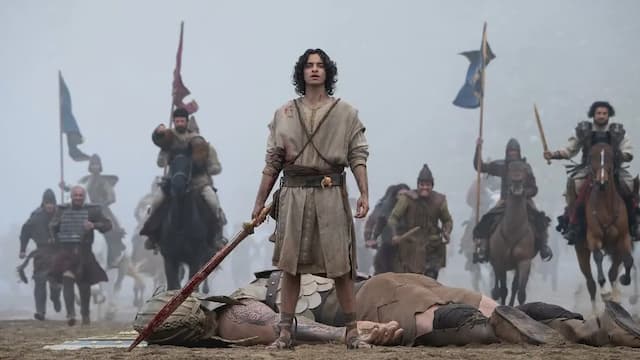Morale in Survival: The Medusa vs Endurance and their spiritual lessons
By Elizabeth Prata
SYNOPSIS
Reflecting on two shipwrecks—the brutal chaos of the Medusa in 1816 and the unity aboard Shackleton’s Endurance in 1915—this post contrasts human nature under pressure. Where the Medusa revealed the depths of selfishness and disorder, the Endurance showed the power of leadership, sacrifice, and teamwork. The comparison invites a deeper look at how faith, morality, and love for others shape our responses in crisis.
This past summer I read a book recounting the 1816 maritime disaster the Wreck of the Medusa, and the horrifying struggle of the survivors of that event on what became known as the death raft. Chaos, drunkenness, ‘mercy killings’, riots, stealing rations, and cannibalism. This event was painted by French artist Théodore Géricault as a large-scale installation. It, and the news of the raft’s inhuman and inhumane doings sparked a controversy that rings through the centuries, even now.
I also recently watched a National Geographic documentary on the wreck of the Antarctic explorer’s ship Endurance, led by polar explorer Ernest Shackleton. The ice trapped the ship, which eventually crushed and sank it. The men survived on the ice floes until the ice began to shrink in spring. They then boarded the life boats and sailed for an uninhabited spit of rock, deserted Elephant Island, where most of the men were deposited. Shackleton and a few of the men then sailed on across the wild Southern Ocean for 800 miles to reach the whaling station at South Georgia.
“Many historians regard the voyage of the crew in a 22.5-foot ship’s boat through the “Furious Fifties” [latitudes] as the greatest small-boat journey ever completed.”
Intending to land on South Georgia on the side where the whaling station existed, however, the boat landed on the opposite shore, where mountain ranges barred the men’s path and no man had ever crossed. But Shackleton did, with a five of his men arriving at the whaling station to ask for a rescue boat to retrieve the men still on Elephant Island. It took 4 months and several failed attempts to get to the men, but they finally rescued them- and they were all alive. Phew!
The book I’d read was “Wreck of the Medusa: The Tragic Story of the Death Raft” by Alexander McKee.
The National Geographic documentary I watched is called Endurance, and I watched on Hulu.

As I watched Endurance, one theme kept coming up.
The theme was morale. Optimism. Teamwork.
Generally accepted as the basis for their success under terrifying and persistent conditions was the fact that Shackleton insisted on positivity. He also valued each and every man. Shackleton would go to lengths for them, even to his own death. The men knew this and willingly followed Shackleton. Here is an example from the documentary of how morale had built a strong team, where each life was valued–
Greenstreet spilled some of his precious ration of milk. He broke down. Quietly, each of the other expedition members poured a tiny bit of milk into his cup.
Teamwork, looking out for the other man. Helping each other.
When that bit of milk could mean life or death for the men, they each sacrificed some of the precious liquid to help another. The Endurance survival experience showed the best of humanity. Though one can never be sure about all of them, many of the Endurance’s men were Christian.
I was contrasting the life aboard the Endurance and the raft of the Medusa. Although Shackleton kept order and as usual on a ship there was a hierarchy, he valued the lives of others. He insisted that they function as a team, for the well-being of all.
On the Medusa it immediately became apparent that many were out for themselves and that the captain not only cared only for himself, but had given over tacit command to an incompetent person who had no rank at all, but was a passenger! The rest of the crew and most passengers took that cue and all hell broke loose.
When the ship struck the Bank of Arguin sandbar about 80 kilometers off the coast of Mauritania, chaos immediately descended. There was no order, no care, no ‘women and children first’. There was simply hell, in that the worst of man’s sinful nature immediately rose up and took over. Of the 150 people on the raft, only 15 survived, with 5 people dying shortly after. And of the remaining 10, several may had survived physically but mentally went insane from the trauma.
I was thinking the two survival situations are like the two worlds that exist on earth. One, a pagan world populated by unsaved individuals who kill others at a heartbeat to save one’s self; and the Endurance where the care for others above one’s self was paramount.
The best of humanity is seen in the Endurance’s men. They held together, and subdued their own natural impulses and passions for the betterment of others. They held together and they survived.
Not a huge theological point, but just something I was thinking as I read two different accounts of a shipwreck, and how the people responded. For us saved Christians, working toward the betterment of others, lifting others up, seeking to obey the One in charge and remain unweary from doing good is commanded in the Bible. Even reading a book about the Raft of the Medusa from this distant point in time was shocking to me how low humans can go when passions become unrestrained and survival is at play.
The one is moral virtue to the betterment of man, the other is unrestrained sin and horror to the death of man.
Disciples’ Relation to Each Other
12 “This is My commandment, that you love one another, just as I have loved you. 13 Greater love has no one than this, that a person will lay down his life for his friends. 14 You are My friends if you do what I command you. 15 No longer do I call you slaves, for the slave does not know what his master is doing; but I have called you friends, because all things that I have heard from My Father I have made known to you. 16 You did not choose Me but I chose you, and appointed you that you would go and bear fruit, and that your fruit would remain, so that whatever you ask of the Father in My name He may give to you. 17 This I command you, that you love one another.” (John 15:13).
Further Resources





